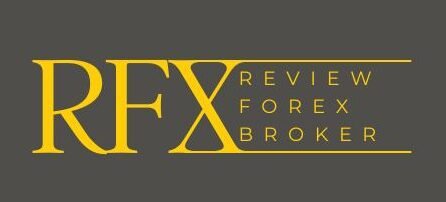In the competitive Forex landscape of 2025, brokers are constantly striving to offer more attractive conditions, with tight spreads being a primary battleground. However, it’s important to understand that “tightest rates” often come with nuances, such as commissions, execution quality, and account types.
Understanding Spreads and Their Types
Before we compare, let’s clarify the different ways brokers present spreads:
- Variable/Floating Spreads: These spreads fluctuate based on market volatility, liquidity, and time of day. They tend to be tighter during peak trading hours (e.g., London and New York sessions) for major pairs and widen during news events or quiet periods. Most brokers offer variable spreads.
- Fixed Spreads: These spreads remain constant regardless of market conditions. While they offer predictability, they are typically wider than variable spreads during calm markets but can be advantageous during volatile times when variable spreads might blow out.
- Raw Spreads: Often associated with ECN (Electronic Communication Network) or STP (Straight Through Processing) accounts, raw spreads are the interbank market rates passed directly to the trader with little to no markup. However, brokers offering raw spreads usually charge a separate, fixed commission per lot traded. This model is generally preferred by professional traders and scalpers.
Factors Influencing Spread Tightness
Several factors dictate how tight a broker’s spreads can be:
- Broker’s Business Model: Market Makers (dealing desk brokers) can offer fixed spreads or slightly wider variable spreads as they essentially create the market for their clients. ECN/STP brokers connect traders directly to liquidity providers, offering tighter, raw spreads.
- Liquidity: Highly liquid currency pairs (like EUR/USD, GBP/USD, USD/JPY) always have tighter spreads than less frequently traded exotic pairs.
- Trading Session: Spreads are typically tightest when major financial centers are active (e.g., London and New York overlaps) due to higher trading volumes.
- Account Type: As mentioned, ECN/Raw spread accounts usually offer tighter spreads compared to Standard or Micro accounts.
- Broker’s Liquidity Providers: Brokers with access to a deep pool of tier-one liquidity providers can consistently offer more competitive spreads.
Which Brokers Are Known for Offering the Tightest Spreads in 2025?
When evaluating brokers for the tightest spreads, we often look at their ECN/Raw spread accounts for major pairs like EUR/USD, where spreads can frequently hit 0.0 pips (plus commission).
Here are some of the consistently top-rated brokers known for their competitive spreads in 2025:
- IC Markets:
- Specialty: Consistently known for ultra-low spreads on their Raw Spread accounts, often averaging 0.0 pips on EUR/USD with a competitive commission. They are a true ECN broker.
- Ideal for: Scalpers, high-frequency traders, and those seeking direct market access.
- Pepperstone:
- Specialty: Their “Razor Account” is designed for tight spreads, often from 0.0 pips on major pairs, coupled with low commissions. They are also an ECN broker.
- Ideal for: Advanced traders, scalpers, and those using Expert Advisors (EAs) who demand excellent execution and low costs.
- XM Group:
- Specialty: While offering various account types, their “XM Zero” account provides spreads as low as 0.0 pips on major pairs with commission. They are popular globally and offer diverse trading conditions.
- Ideal for: Traders seeking competitive costs with the flexibility of different account types and strong global presence.
- FP Markets:
- Specialty: Offers “Raw” accounts with spreads starting from 0.0 pips on major currency pairs, plus a competitive commission. They emphasize fast execution and deep liquidity.
- Ideal for: Traders looking for a balance of low spreads and reliable execution across a good range of instruments.
- Exness:
- Specialty: Known for very tight spreads on their “Raw Spread” and “Zero” accounts, often 0.0 pips on major pairs with commissions. They also offer high leverage in certain regions and a wide variety of instruments.
- Ideal for: Traders seeking extremely tight spreads and flexible trading conditions, especially in regions with less restrictive leverage limits.
- Fusion Markets:
- Specialty: Gaining traction for its incredibly competitive “Zero” accounts which offer average spreads of 0.0 pips on EUR/USD, combined with very low commissions.
- Ideal for: Cost-conscious traders and scalpers.
The Bottom Line: Spreads vs. Total Cost
While tight spreads are highly desirable, remember to consider the total cost of trading.
- Commissions: If a broker offers 0.0 pip spreads, they will almost certainly charge a commission per lot. Calculate this into your overall cost.
- Execution Quality: A tight spread is meaningless if your orders suffer from excessive slippage (being executed at a different price than intended) or frequent re-quotes. Look for brokers known for excellent execution speed.
- Hidden Fees: Check for deposit/withdrawal fees, inactivity fees, or overnight (swap) fees, which can add up.
Ultimately, the “best” broker for tight spreads is one that balances minimal trading costs with robust regulation, reliable execution, and a platform that suits your trading style. Always open a demo account to experience the real-time spreads and execution quality before committing your capital.

